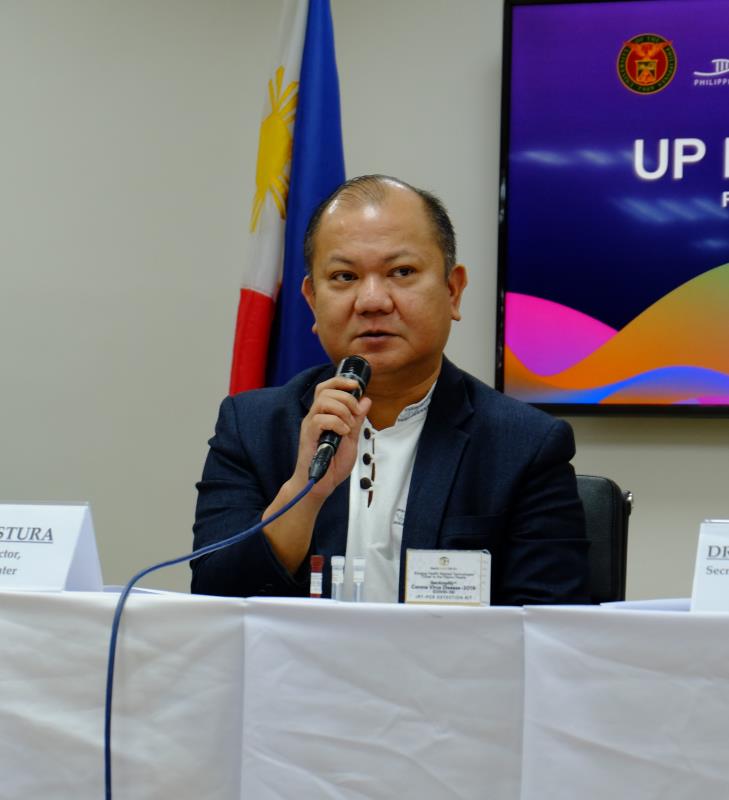 Dr Destura presents PH-made COVID-19 testing kid to the press
Dr Destura presents PH-made COVID-19 testing kid to the pressThe Philippine Food and Drug Administration (FDA) has issued a certificate of exemption for the locally developed detection kits for the novel severe acute respiratory syndrome coronavirus 2 (SARS-CoV-2), greenlighting its field validation study.
Within 2–3 weeks, the research team, headed by Dr Raul V Destura, deputy executive director of the Philippine Genome Centre, will finalize the trial’s details and ship the testing kits out to a handful of public and private hospitals across the country.
“The purpose of this is to know the behaviour of the technology in the field, so we can continuously monitor it,” Destura says, in keeping with globally accepted standards and protocols. The testing kit will be made commercially and more widely available after it has passed field validation.
The kit is designed to detect SARS-CoV-2 RNA from nasopharyngeal and throat swab samples collected from patients. These signals will then be amplified using polymerase chain reaction (PCR), which determines if a patient is positive for the virus.
The kit itself contains three reagents: the probe to detect the virus, molecular-grade water to serve as a negative control, and the master mix, which provides everything else that the PCR needs to run.
All-in-all, the process should take around 1.5 hours to complete, which is significantly shorter than tests currently being used in the country, which can take up to 6 hours to finish. This is because even if PCR runs for 1–2 hours each, some kits require three separate runs before results are confirmed.
Although all existing detection methods rely on PCR technologies, the locally made testing kits employ a single-step, multiplex technology, allowing technicians to run the three tests simultaneously.
“When you are a technology developer, you have to take into consideration the situation where the technology will be adapted,” to be able to address particular needs, Destura says. “That’s why we developed the one-step, multiplex, simultaneous detection of pan-coronavirus and confirming if it is the novel coronavirus in one run.”
The local kits promise to make testing cheaper. Each test costs only Php 1,320 ($26), which is nearly six time cheaper than what is currently in use.
Samples that test positive using the local kits will be transmitted to the Philippine Genome Centre for confirmation. The process fits within the system that the Department of Health has put in place, Destura explains.
“We will not stray from the national programme,” he says. Whatever criteria that the country’s health department has for testing persons under investigation should remain and should be adhered to by the hospitals that will receive the testing kit. The clinical response that follows should also depend on the results released by health department.”
Once the field testing is over, Destura seeks to decentralize the testing, aiding in the country’s efforts to contain the outbreak. “The purpose why we developed the kit is to empower the hospitals that have the capacity to carry out the test,” he says.